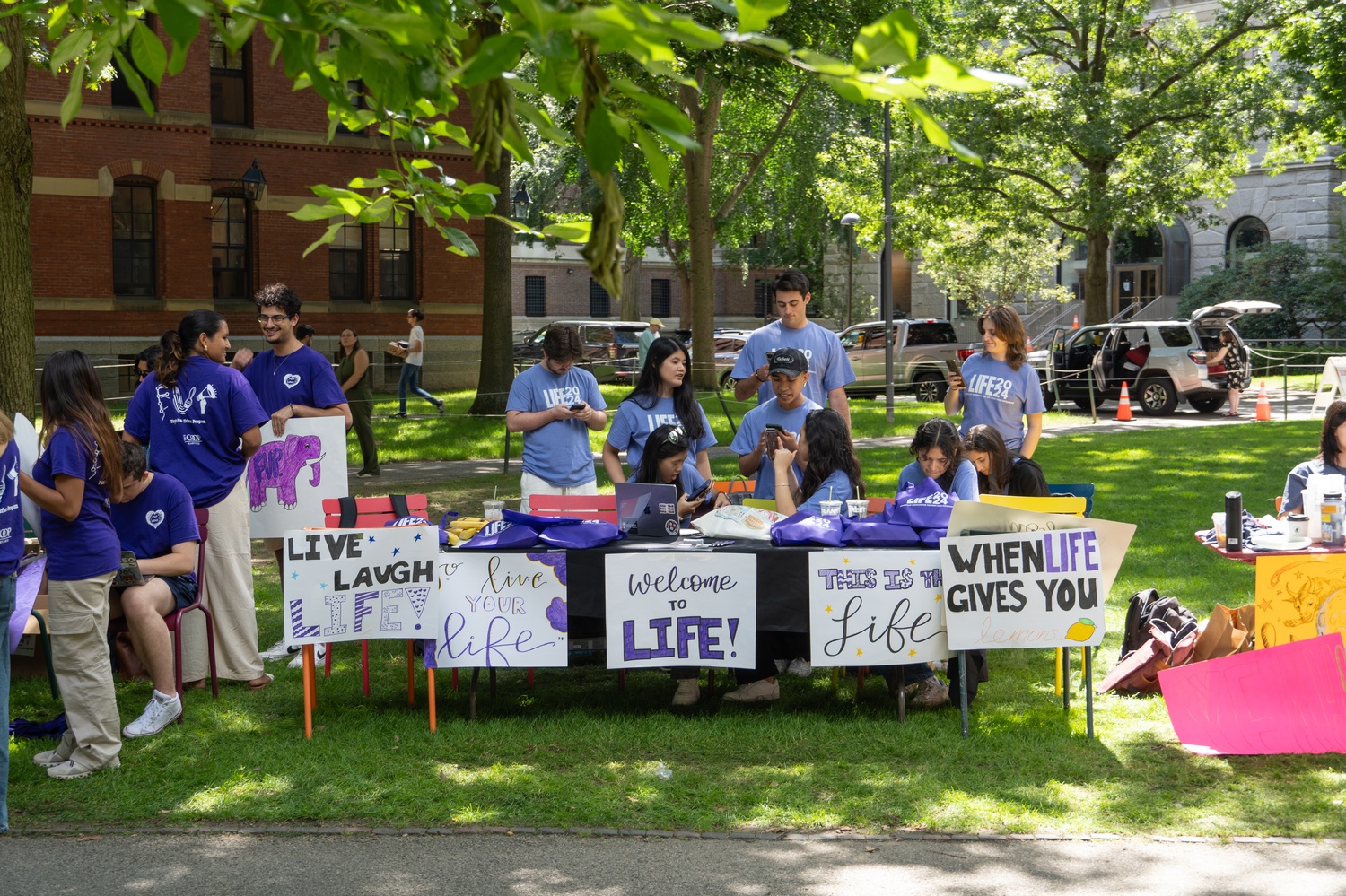
News
Summers Will Not Finish Semester of Teaching as Harvard Investigates Epstein Ties

News
Harvard College Students Report Favoring Divestment from Israel in HUA Survey

News
‘He Should Resign’: Harvard Undergrads Take Hard Line Against Summers Over Epstein Scandal

News
Harvard To Launch New Investigation Into Epstein’s Ties to Summers, Other University Affiliates

News
Harvard Students To Vote on Divestment From Israel in Inaugural HUA Election Survey
Harvard Should Require Pre-Orientation
For about two-thirds of Harvard’s incoming class, pre-orientation programs offer a welcome. For the rest — totalling around 500 students — they’re a passed-on opportunity or a closed door.
As any student knows, the first few weeks of college are among the most important for establishing a sense of belonging on campus. At Harvard, however, access to pre-orientation programs — where many students form their first friend groups — can be limited. This leaves hundreds of first-years starting behind their peers in building a crucial sense of belonging
Harvard should expand pre-orientation programs until they are open to all. And, eventually, they should be required for all freshmen.
As a first-year, I eagerly applied to two pre-orientation programs — the maximum number allowed. I was not selected for either. I spent the summer reassuring myself that it would be fine, and it wouldn’t be that big of a deal.
One of the most repeated refrains for freshmen everywhere — Harvard and beyond — is the importance of the first week on campus: “No one knows each other! You can sit at any table and they’ll be eager for new friends.”
I quickly found that was not the case for me. At Annenberg Hall, I’d sit at random tables only to find that the group already knew each other — they were in a pre-orientation group together — and I was the odd one out. When I tried instead to get meals with roommates or classmates, I found they already had plans with their pre-orientation friends.
The very strength of pre-orientations is precisely what isolates non-participants: Some first-years are immediately connected while others are intentionally left out.
I eventually found my footing (as everyone else I know who didn’t participate in pre-orientation did), but the initial stress of feeling like a stranger on campus weighed on my early weeks at Harvard. My experience was not unique. Ironically, I found myself bonding with other first-years about how difficult it was to meet people amidst all the strong pre-orientation friend groups.
Research repeatedly shows that early belonging is associated with boosted grade point averages and wellbeing at universities. Inclusion is key to success, and this holds true at a competitive school like Harvard.
Thus, it's not surprising to learn that Yale University expanded its pre-orientation programs to all students in 2022. Princeton University mandates universal activity-based orientation programs that happen on and off campus too. Those first few weeks on campus are crucial, but currently, around one-third of Harvard first-years are starting behind.
Not every program needs to be an expensive excursion backpacking or a full-scale arts production. Rather, merely working with a group on a shared task allows for strong relationships to form anywhere.
And it doesn’t have to happen all at once. The expansion of pre-orientation can take place slowly, allowing for the programs to adequately adapt to the influx of new students. Indeed, just making pre-orientation open to all freshmen while maintaining financial aid would be a worthwhile first step.
Choosing to simply not apply to a pre-orientation may be okay for some, but for many, it can unexpectedly lead to weeks of isolation during those sensitive early days. These programs work wonders, and Harvard needs to recognize that by requiring all first-years to come into the fold.
By expanding resources to pre-orientation programs and introducing a new lottery system, Harvard can reaffirm its dedication to an enhanced first-year experience.
We should guarantee that no one starts the year alone and make sure that orientation is a bridge, not a barrier.
L.A. Karnes ’28, a Crimson Editorial Editor, lives in Mather House.
Want to keep up with breaking news? Subscribe to our email newsletter.

